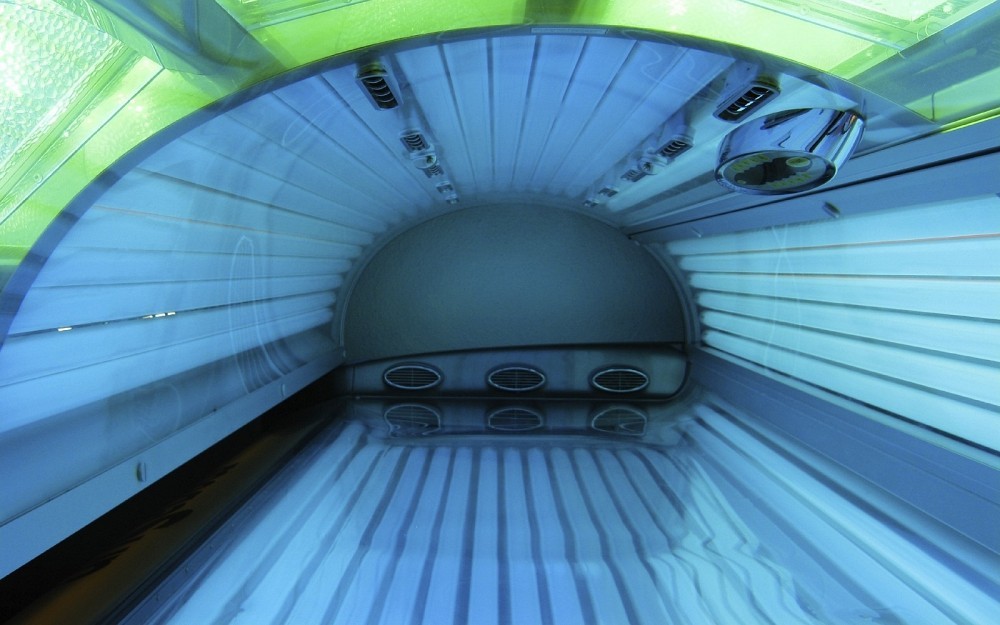
UC HEALTH LINE: Resist Temptation to Tan, Despite Winter Doldrums
CINCINNATIDont let winters lack of sunshine lure you into a tanning bed.
The "glow of tanning isnt healthy. It can prematurely age your skin and skyrocket your risk for skin cancer, particularly melanomaan aggressive form of skin cancer than claims more than 8,000 lives annually.
This year, ultraviolet radiation was classified by the International Agency for Research on Cancer of the World Health Organization as a high-level carcinogen proven to cause cancer in humans.
2010 data published in the scientific journal Cancer Epidemiology, Biomarkers and Prevention, showed that people who used tanning bedsregardless of type or duration of usewere 74 percent more likely to develop melanoma.
"The No. 1 thing anyone can do to reduce their risk for skin cancer is to stay pale. There is no question that long-term exposure to artificial sources of ultraviolet rays, like those in tanning beds, lead to skin cancer and cause premature aging of the skin and wrinkles, says Jeffrey Sussman, MD, chief of surgical oncology at the University of Cincinnati (UC) College of Medicine and surgical oncologist with UC Health.
Additionally, a study published in the December 2011 Journal of the American Academy of Dermatology showed that young people who tanned on indoor beds had a 69 percent increased risk of early-onset basal cell carcinoma.
"Tanning beds cause increased skin damage because the exposure is more intense than natural sunlight. Overexposure to both natural and artificial UV light sources, though, can lead to skin cancer, adds Adam Ingraffea, MD, a Mohs micrographic surgeon with UC Health and clinical assistant professor at the UC College of Medicine. "The best advice is to avoid tanning beds entirely and wear sunblock that protects against the entire spectrum of UV light any time you are outside.
UVB rays cause sunburn and may lead to direct DNA changes that contribute to skin cancer. UVA radiation penetrates deeply without causing a burn and can indirectly damage DNA.
"Sun protection factor, or SPF, is an indication of how well a product blocks the suns UVB radiation. It does not account for UVA radiation, so to get the best protection its important for people to wear protective clothing in addition to sunblock while outside, adds Ingraffea. "Tanning lotions and sprays are safer alternatives that tanning, whether indoors or out.
According to the National Cancer Institute, more than 1 million Americans are diagnosed with non-melanoma skin cancer every year. The organization estimates that up to 50 percent of Americans who live to age 65 will develop non-melanoma skin cancer at least once.
» To learn more about UC Healths multidisciplinary skin cancer team, a part of the UC Cancer Institute, visit cancer.uc.edu.
» To schedule a skin cancer screening, call UC Health Dermatology at 513-475-7630.

Jeffrey Sussman, MD, is a professor and chief of surgical oncology at UC.

a clinical assistant professor and associate program director in the University of Cincinnati s Department of Dermatology and a UC Cancer Institute and UC Health dermatologist.
Related Stories
Ohio could soon make breast cancer screenings more affordable
May 9, 2025
The University of Cincinnati Cancer Center's Ann Brown was featured in Local 12 and Cincinnati Enquirer reports on a bill introduced by Rep. Jean Schmidt in the Ohio legislature that seeks to eliminate out of pocket medical expenses such as copays and deductibles associated with supplemental breast cancer screenings.
Preparing students for artificial intelligence in education
May 8, 2025
Laurah Turner, PhD, associate dean for artificial intelligence and educational informatics at the University of Cincinnati's College of Medicine, recently joined the For The Love of EdTech podcast to discuss the usage of personalized learning and AI coaches to enhance educational experiences.
UC lab-on-a-chip devices take public health into home
May 8, 2025
University of Cincinnati engineers created a new device to help doctors diagnose depression and anxiety. The “lab-on-a-chip” device measures the stress hormone cortisol from a patient’s saliva. Knowing if a patient has elevated stress hormones can provide useful diagnostic information even if patients do not report feelings of anxiety, stress or depression in a standard mental health questionnaire.
